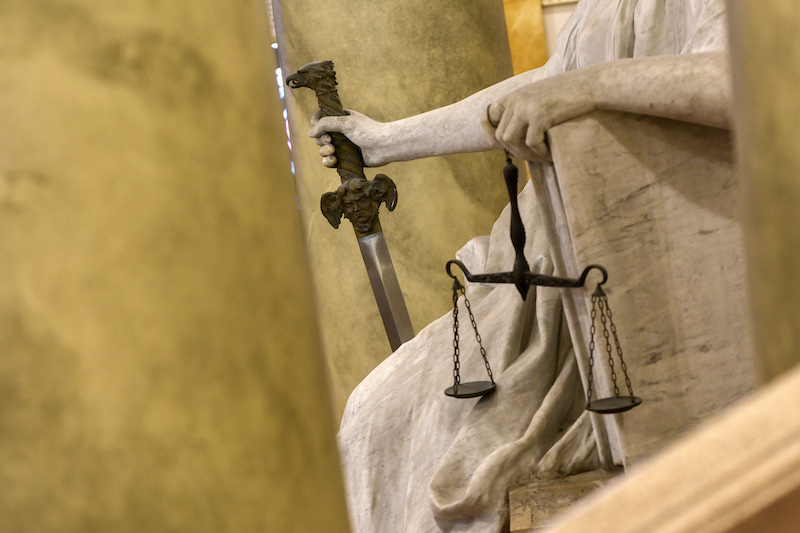Poland’s courts are having problems staffing incompetent judges. This is the result of the governing Law and Justice’s “reforms” since the party won an outright majority in 2015.
The epitome of these problems is Julia Przyłębska, the chairwoman of the Constitutional Court, whom Jaroslaw Kaczynski, the leader of Law and Justice, called “his social discovery”. He often met her privately and praised her culinary skills.
Przyłębska became a judge in 1987. She passed the state exam with ‘barely sufficient’, the lowest possible grade for admission to the profession. There are many similar examples. The Association of Independent Judges “Iustitia” published a report showing that the Minister of Justice, in the first years of the “reform,” replaced 160 court presidents with his appointees, despite many lacking qualifications. As a result, the waiting period for resolving cases in Polish courts has increased.
The purpose of such operations is for the governing party to gain the loyalty of judges. The Constitutional Court under Przyłębska’s leadership issued rulings in accordance with the will of the authorities. An example was in 2020, when the judges ruled that abortions previously allowed in cases of fetal damage or defects were unconstitutional. This led to huge protests.
But resistance to top-down changes imposed by the authorities is still strong in Polish courts. Ziobro’s nominee judges are being dissected by the “old” part of the judiciary, making it impossible for the former to rule smoothly.
Also, the work of the Constitutional Court is frozen. Some judges are demanding that Przyłębska leave, recognising that her term has expired. They do not want to come to court sessions. The court under her leadership has become a de facto dysfunctional institution.
The EU is the last guardian of Polish courts’ independence, and it should not hold back in its efforts to defend this key principle of the 27 member-bloc.






